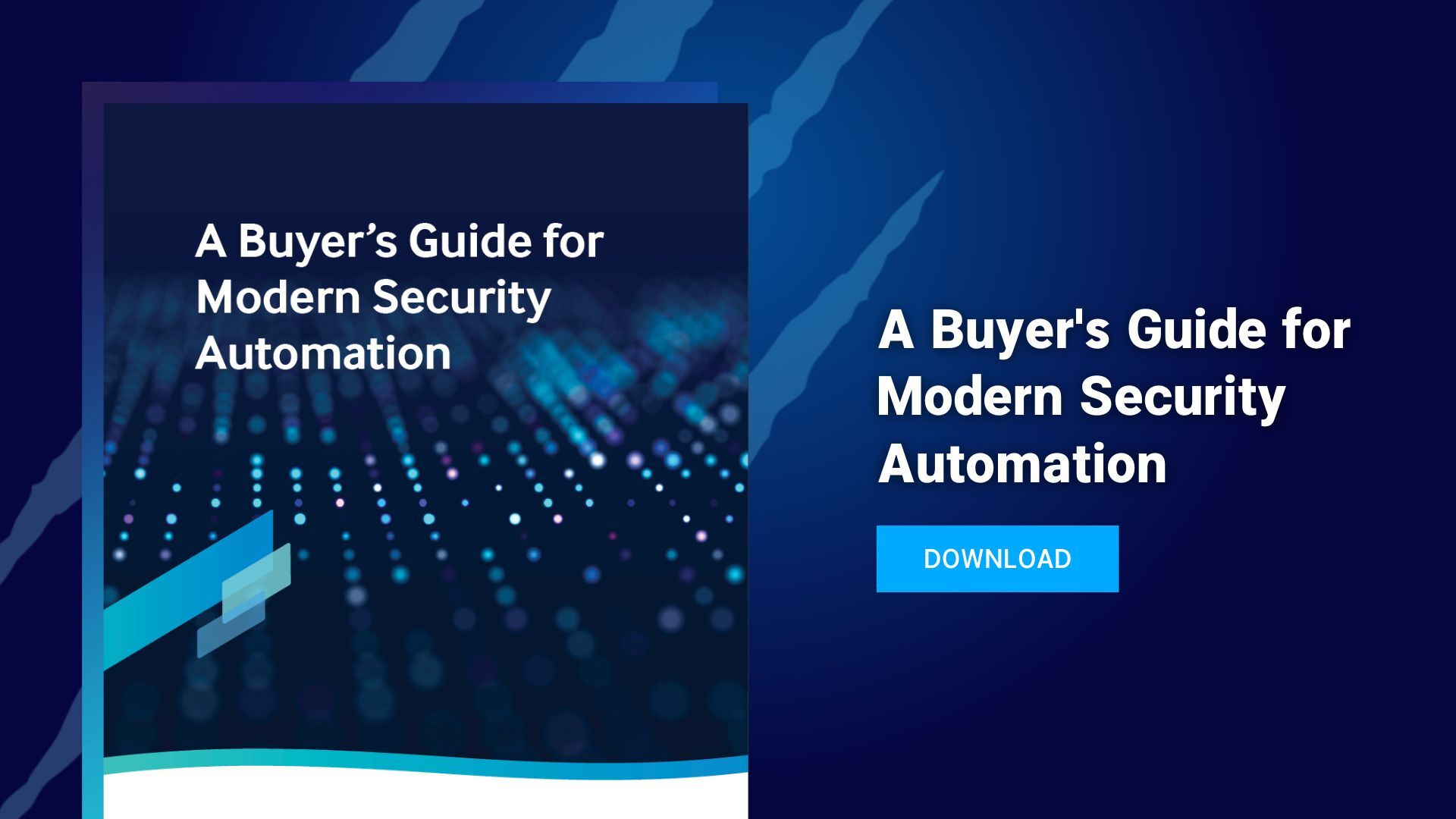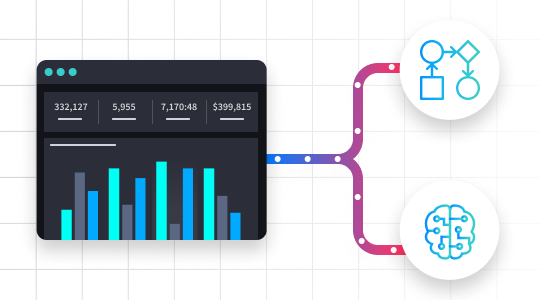How low-code security automation makes it possible to respond quickly and effectively to today’s complex challenges.
Low-code security automation is an ideal solution for companies that need to respond quickly, innovatively, and effectively to today’s complex challenges. Organizations continue to encounter threats that are more sophisticated and targeted than ever before. In the face of these new threats, organizations must adopt a proactive security posture – low-code security automation makes that possible without the need to hire more people.
Learn more about low-code security automation.
The power and flexibility of low-code allow SOC teams, who may not have extensive experience or bandwidth for complex python scripting, to build powerful automated workflows quickly and easily. This reduces dwell time by making it easier for everyone on your team – not just technical experts – to create response processes that align with your unique business processes.
Powerfully Built Features
The low-code platform’s extensive automation engine is what makes it possible to build complex applications with ease. It lets you define your application logic in terms of rules, where each rule uses one or more triggers and actions to automatically take action when an event occurs.
Dynamic Use Cases. Low-code security automation provides the power and flexibility to handle a wide range of use cases inside the SOC like incident response, SIEM alert triage, and more. It is also powerful enough to extend beyond the SOC with use cases for fraud, employee offboarding, and mobile phishing.
Robust Case management. In addition to providing visibility into assets, devices, and users across all systems within an organization, low-code technology also acts as a system of record for security. Built-in workflow capabilities are designed to streamline processes and reduce the manual effort associated with managing incidents or investigations – allowing you to focus on complex threats that require more human logic.
Flexibility That Adapts to You
Low-code security automation gives you the freedom to create the exact solution you need. You can build any type of application in the cloud or on-premise, or deploy it across multiple clouds and data centers.
Endless Integrations. Security teams need an automation platform that can adapt to existing security processes, not the other way around. That’s why low-code platforms are the most flexible option in the market today. With API-first architecture, these solutions can be integrated with anything to automate any security workflow throughout your organization.
Scalable Cloud Security. Cloud-scale security automation is built for the future. It’s a platform that can adapt to the changing needs of security teams, and it’s flexible enough to support new regulations or compliance requirements. The flexibility of cloud security means no overhead of infrastructure to manage, easy upgrades, and quicker configuration times.
Combined to Unite The Disconnected
There are many reasons why security leaders choose low-code security automation to help them stay ahead of threats rather than simply reacting after they occur. The power and flexibility of low-code platforms help to overcome the challenge of disjointed security tools by offering features like:
Sophisticated dashboards. Visualized, customizable dashboards make it easy for anyone across your organization—regardless of technical skill level—to monitor key security metrics and threats in real-time. Low-code dashboards pull data quickly across the tech stack so you can make informed decisions when it matters most.
Automated reporting. Schedule reports to gain insight into the performance, capacity, and value of your organization’s SOC team. The power and flexibility of low-code security automation’s reporting capabilities are hard to find in other tools, like no-code automation.
The major benefit of low-code platforms is, without a doubt, their power and flexibility. Full-code, legacy SOAR platforms are powerful but lack flexibility. No-code automation platforms promise accessibility but lack the adaptability and strength most teams need. Security leaders and teams need an automation platform that adapts to ever-changing needs, while also becoming a system of record for security. That’s the power of low code – and that’s where its true value lies.

A Buyer’s Guide for Modern Security Automation
Cut through the complexity and frustration of SOAR and security automation platforms. Learn everything you need to know about selecting an automation solution, so you can select the best one for your team.


